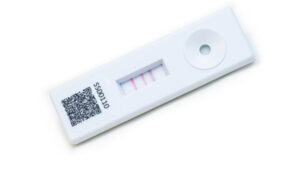Breaking Down the Barriers of Traditional Clinical Trials
According to biopharmadive, 85% of all clinical trials fail to recruit enough patients, 80% face delays due to recruitment problems, and dropout rates are high, which compromises the diversity of the patient cohort and when a trial can commence if at all, creating repercussions on the ability to produce groundbreaking drugs.
It is no surprise why these stats are stacked against clinical trial managers: lack of awareness, anxiety and availability. However, it is not necessarily the recruitment process that is at fault here. So, what barriers need to be broken down to improve these statistics?
Barriers can be broken
Clinical trial managers work hard to educate and support patients during the recruitment and clinical trial process; it is a given. However, significant barriers for recruiting and retaining patients are anxiety and availability.
Personal circumstance and personalities are variables that will influence anxiety and availability, something clinical trial managers cannot control. However, they can provide a solution to address these two areas:
Reduce anxiety
Anxiety is, of course, centred around the impact on health, fear of pain, outcomes and how testing and assessment will be carried out.
If clinical trial managers can explain there is no need for extensive testing and it can be done with an intuitive, non-invasive near-patient rapid test in any location, anxiety would be reduced. If a patient could easily test themselves using saliva, urine or a pinprick of blood, for example, and use mHealth App to extract data from a rapid test, record results and share via connectivity, anxiety would be reduced. If a patient can be easily informed about the progress of their involvement in the trial via an App dashboard, anxiety would be reduced.
Increase availability
The second two points above also address the availability issue. ‘70% of potential clinical trial patients live more than two hours away from a study centre’. So, the impact on a patient’s life is significant if having to regularly visit clinics for testing and assessments. You can understand why a reluctance to take part may creep in.
However, if testing and data sharing can take place at home, at work, in a community clinic, there will be no need to travel to the clinical trial centre as often: less disruption. Also, patients can engage in live chats, messaging and video calls within an App at a convenient time from any location. Anxiety and availability addressed once more.
There are obvious benefits for patients with mobility or chronic health issues.
Furthermore, when patient recruitment and retention accounts for 35-40% of clinical trial budgets, using accurate and easy-to-use methods will positively help in budgeting: fewer patient expenses reimbursements, streamlined labour activities and faster access to analytical data.
It doesn’t stop there
Once a drug has been approved, near-patient rapid tests and Apps can also be used for monitoring drug therapy as part of a personalised medicine approach. In doing so, addressing the big data, differentiation, patient-centricity and patient experience requirements for success in the biosimilar and therapeutics Industries.
Now barriers have been broken down
Empowering and informing volunteers via an uncomplicated pre-clinical trial and the clinical trial process will help make volunteers feel happier about enrolling in trials. The long-term benefits being that clinical trials can start and progress within desired timeframes and in a cost-effective manner that appeases all stakeholder needs.
Clinical trial managers have a hard job and any tool that can make their jobs easier, the better.
For more information on the products and services Abingdon Health provide, please fill out the enquiry form attached to this page.


